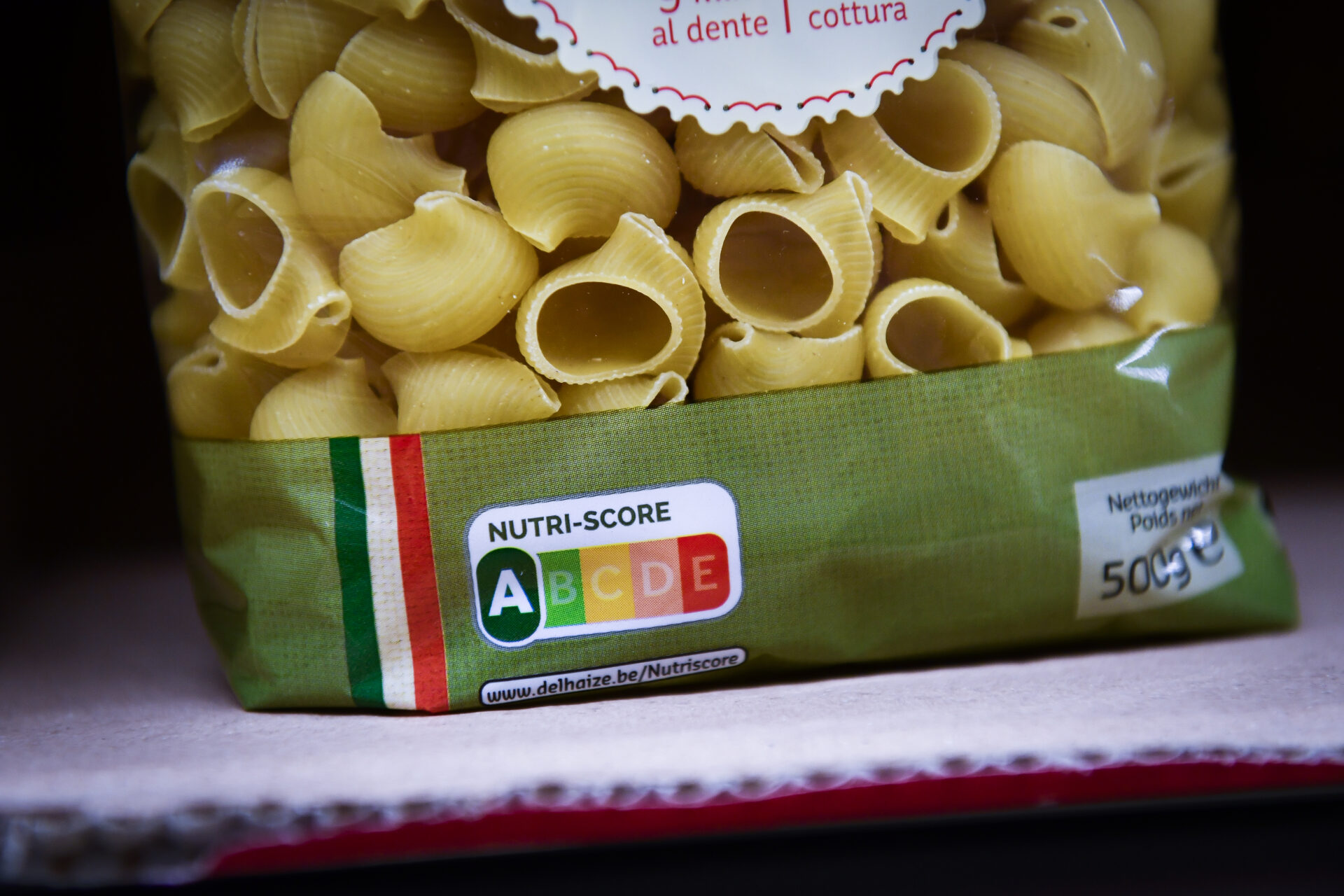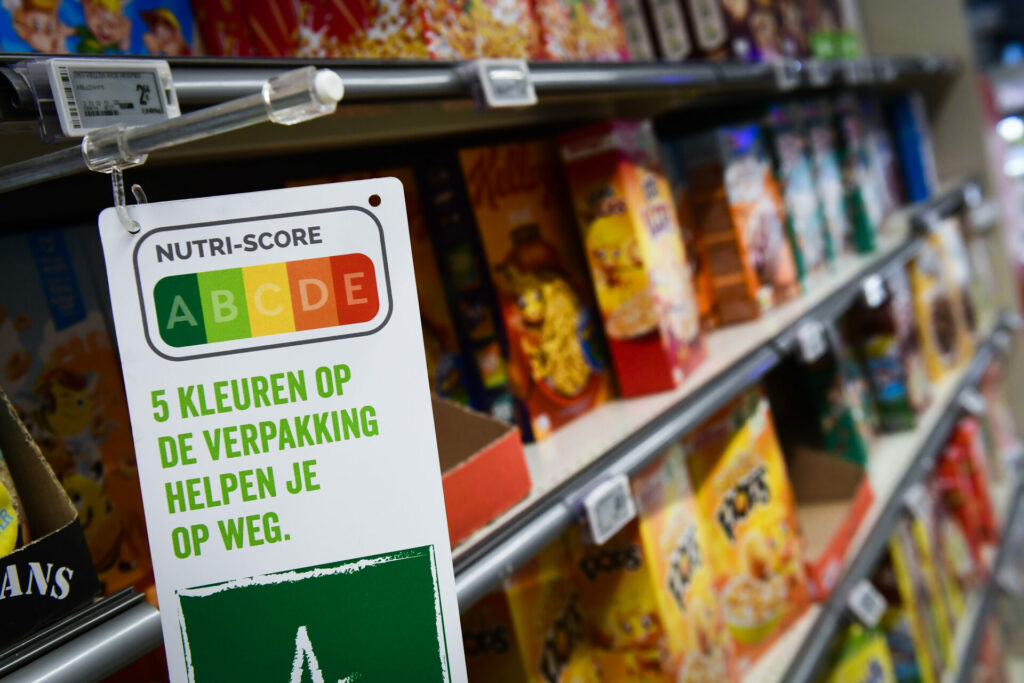After months of delays due to opposition between Member States, the Belgian Presidency plans to kickstart EU-wide standardisation of the Nutri-Score. Changes to the system this month impact 40% of products on the Belgian market.
The 'interpretative labelling system' developed in 2017 is currently used in seven European countries: Belgium, France, Spain, The Netherlands, Switzerland and Germany. How a product's Nutri-Score is calculated changed this month, marking a step forward in the plan to implement EU-wide standardisation.
The Nutri-Score is a points-based system for supermarket products which is based on content per 100g (or 100ml for liquids). Products are then classified from A to E, each letter with a corresponding colour. The intention is to inform consumers as clearly as possible about how healthy a product is.
The new calculations rank products more strictly on salt, sugar and fat content. Olive, rapeseed and walnut oils will therefore go up in nutritional value, while chocolate drinks, breakfast cereals and soft drinks containing sweeteners will receive a lower score. The changes affect 40% of products in the Belgian market.
A transitional period of two years gives companies time to make changes to product content and labelling. Two separate labels will exist during this time, in some cases accompanied by a third label that clarifies the new score.
These transformations are a preamble to EU-wide standardisation of the Nutri-Score. Advocates believe a general labelling system would benefit both industry and consumer understanding of nutritional value, not to mention public health.
"Belgium is a small country whose food industry exports a lot, particularly to Europe," Head of Food Production and Consumption at Fevia Ann Nachtergaele told L'Echo. "The coexistence of several different systems complicates matters, both in terms of product labelling and consumer understanding."
Long road
The Nutri-Score, developed by French epidemiologist Serge Hercberg in 2017, is hailed as a comprehensible system recommended by both the European Commission and the World Health Organisation (WHO). A Sciensano survey named it the clearest and most accurate labelling system in 2020.
However, it is not currently compulsory, and brands including Coca-Cola, Ferrero and Mondelez refuse to use it due to the potentially negative impact of a low score on sales.
In addition, food industry lobbyists exercising considerable power in Brussels argue that the Nutri-Score treats traditional produce unfairly. Italian Prime Minister Giorgia Meloni endorses these lobbies, saying the Nutri-Score is "discriminatory and penalising" against Italian food (products such as gorgonzola, parmesan and Parma ham would all receive low nutritional scores).

Credit: Belga / Laurie Dieffembacq
The EU has stalled standardisation due to fears of "polarising the debate".
A decision was due in late 2022, and the dossier has now landed in the hands of the Belgian Presidency. Belgium says it intends to pursue "the promotion of healthy food choices" and implement a "voluntary front-of-pack labelling system, already in force in some EU countries."
An event on 25 April hopes to address some of the opposition's grievances. In the meantime, the Belgian Federal Nutrition and Health Plan (PFNS) is optimistic about achieving European standardisation.
"Finland is potentially interested in the Nutri-Score and Norway has completed a study whose recommendations are in line with it. If these two countries get on board, it's likely that the other Scandinavian countries will follow suit," the health body stated. "With a good ten Member States applying the Nutri-Score, its weight in the balance could prove decisive."

